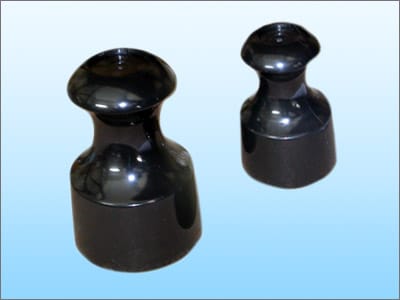At times, China feels just like those years in Naples. The country has developed with a pace and unevenness that make for lots of people trying their very hardest to accomplish tasks they have never before encountered. In the 1990’s, drivers in Beijing never turned on their headlights – that is, until the mayor toured several cities outside China and discovered the key to lowering accident rates after dark. My fellow blogger Cecilia talks about how running on“China time” means that event planning oscillates from endless waits to frenzied scrambles.
But in China, certain details merit unparalleled attention. Notably, official stamps known as gongzhang 公章 can endow mundane documents with a literal seal of approval. I recently had to apply for a residence permit in Beijing, something that required all sorts of letters with proper gongzhang affixed. Most graduate programs in China require applicants to provide original copies of their undergraduate degrees (transcripts, too). When I opened a bank account, I filled out form after form, affixing my signature and scribbling my personal information in Chinese. I thought I had aced it, but when the attendant saw I used X’s rather than checks to fill in the little boxes, she gave me blank forms to fill out in full. “You can practice your Chinese characters!” she said with a smile. Once I finished the application, the forms received a gongzhang and I was on my way. Perhaps her actions seem extreme, but I suspect that those red ink stamps maintain a thin layer of accountability in a society flooded with fake receipts and falsified documents.
Urban China is total chaos. That is to be expected – industrialization is not a dinner party. But there is still a sense of order, one couched not in a Stalinist police state, but one built on a foundation of little red stamps.
我真的很难判断中国社会是不是一个细节导向型社会。我认为瑞士人和日本人是典型的做事认真谨慎一丝不苟的代表。记录准确,规章制度简单明了,整个社会都有条不紊的运营着。与这样井井有条的社会形成鲜明对比的,就是南意大利一带的民众聚集区,在那儿我度过了我童年时代好几年的时光。那个时候要是我们家房子什么坏了,房东就会夸张的手舞足蹈哄骗我们他会去修,修不好就会给我爸妈一瓶酒,以此了事。
有的时候在中国生活就给我那种当年在那不勒斯的感觉。整个国家和人民都使出浑身解数,在以一种前所未有的速度和不平衡性发展着,并取得了他们从未有过的成绩和建树。在90年代的北京,路上的驾驶员们从来都不会开启车前灯,直到有一天,市长去他国出访的时候发现打开车前灯是夜里降低交通事故的关键。我的同事博客写手Cecilia在谈及中国式时间的时候,就说在中国一个事件的规划是从无穷无尽的等待到让人近乎焦躁暴怒的过程。
但是在中国又有一些细节是受到了极大的关注的。比如官方印记就是所谓的公章能把一张平凡的文件纸变成畅通无阻的公文。我近来不得不申请一个北京的居住许可证,一个需要各种各样带着相应公章的文件的东西。绝大部分的中国研究生项目都会要求申请人提供本科学历证书原件,还有成绩单。去银行开户的时候我填了一张又一张的表格签名,用中文潦草的填了我的个人信息。我以为我这就搞定了,但当银行的客服人员发现我是用叉号而不是打勾来填冲表格上的小格子的时候,她又重新给了我一张新表让我重新填过。"你可以借此当作练习汉字书写的机会"她微笑着对我说。完成了申请,拿到了带公章的表格,我就奔向下一个目的地了。也许那个客服的行为看起来是有点儿极端有点儿令人反感的,但是这红红的印章在这充斥着假冒凭证和伪造公文的社会里,或许承载的是这个社会薄如蝉翼的社会信任度。
中国的城市地带真的是一片混乱,这带给我们一个值得思考的问题,就是工业文明和繁荣并不像一场晚餐派对那般只追求热闹华丽。但这样的社会你还是能感受到一定的秩序感,它不像是那种斯大林强权时代的产物,而是建立在红红的小公章上的社会游戏规则。


